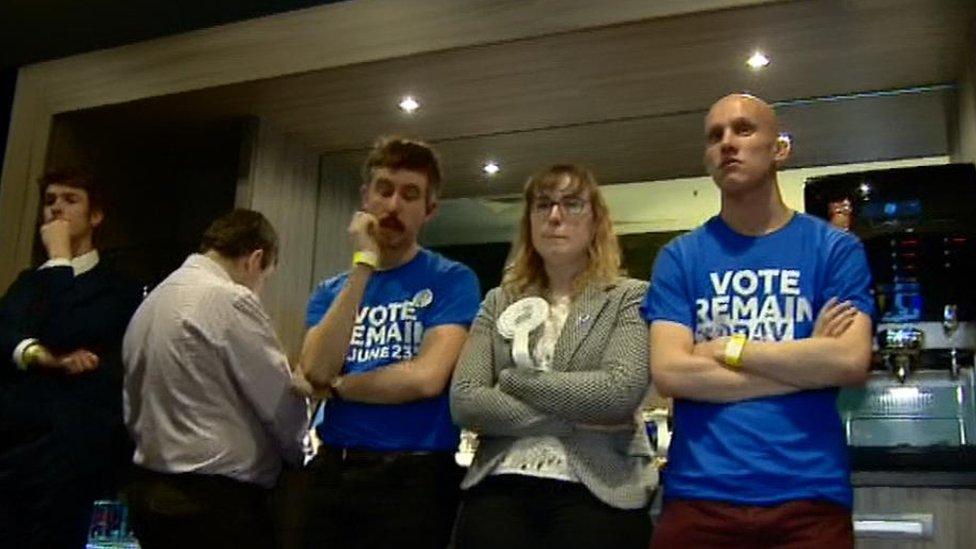Independent Scotland would apply to rejoin European Union - Sturgeon
- Published
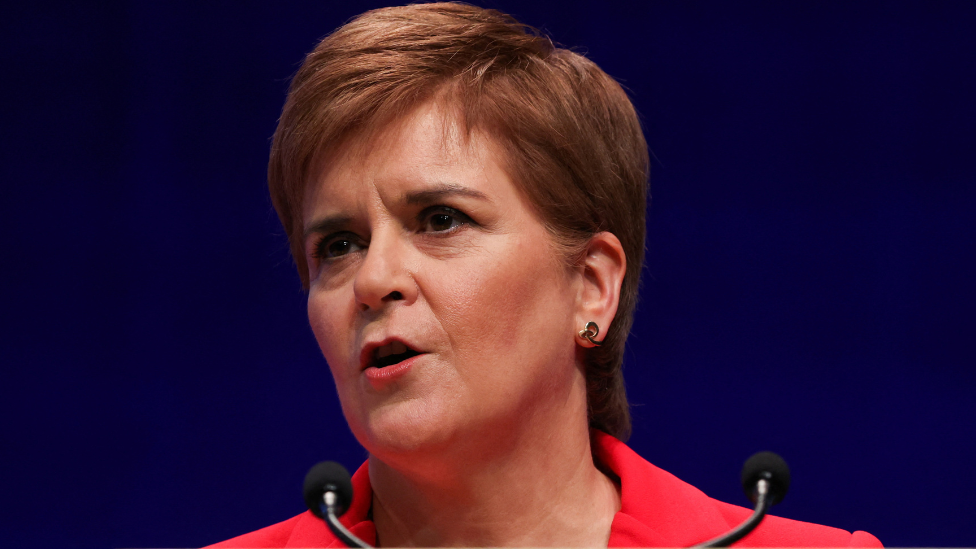
An independent Scotland would apply to rejoin the European Union and redesign the energy market, according to a new economic prospectus.
The Scottish government paper, which will be published on Monday, will set out proposals for key issues, such as currency and border arrangements.
It will also outline a migration policy to boost the working population.
The UK government said now was not the time to be talking about a new independence vote.
A spokesperson said that 60% of Scottish exports went to other parts of the UK, and that voters' priorities were things like economic growth, energy security and the cost of living crisis.
But First Minister Nicola Sturgeon insisted Scotland could no longer "afford to live under Westminster control".
Last week Ms Sturgeon announced plans, which will feature in the document, for an oil fund which she said would deliver up to £20bn of investment within the first decade of Scotland becoming independent.
In 2016 all 32 local authority areas in Scotland voted for Remain in the EU referendum by 62% to 38%.
The Scottish vote contrasted with the overall UK vote to leave by a margin of 52% to 48%.
At the time the first minister said it was clear that people in Scotland saw their future as part of the European Union.
Speaking ahead of the new paper's publication, Ms Sturgeon said: "This is not a debate about change versus status quo - there is no status quo, and Scotland cannot afford to live under Westminster control any longer.
"In 2014 we were promised stability if we voted no to independence - instead we got austerity and Brexit, and are now being taken on a libertarian joy-ride.
"These are not abstract issues - they are doing real damage to our economy, public services, mortgage costs and pensions."
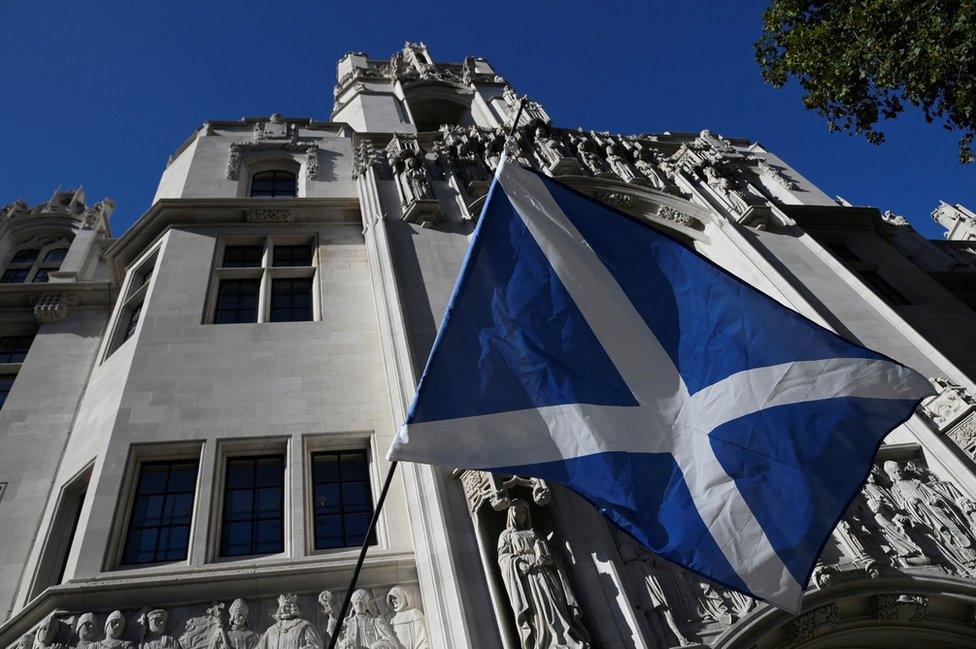
The UK Supreme Court, which heard two days of submissions last week, is going to decide if Holyrood has the legal powers to press ahead with a second independence referendum
Ms Sturgeon said there was "overwhelming evidence" that neighbouring, comparable independent countries were "wealthier, more productive, fairer and happier than Scotland is under Westminster".
And she vowed the resource rich country, which recently generated a record amount of renewable electricity, could match that success with the powers of independence and become a "modern, dynamic and sustainable economy".
The first minister said this would be achieved through ensuring security of energy supply to help tackle the climate emergency and through the creation of a European-style labour market policy.
Ms Sturgeon added that re-joining the EU would enable free travel across the UK and 27 member states and make it easier to attract workers to sectors that have been hard hit by Brexit.
The Scottish Conservatives said an independent Scotland would have to apply to rejoin the EU, and might struggle to meet entry requirements, particularly on the size of its budget deficit.
Finance and economy spokeswoman Liz Smith said: "In order to apply to join the EU, an independent Scotland would need to make huge public spending cuts to meet the strict criteria on budget deficits. Nicola Sturgeon needs to explain where she would plan to make these cuts."
'Grown-up discussion'
The paper will also set out proposals for greater workplace security and an end to discrimination in minimum wage setting.
The first minister said it was time for a "grown-up, honest discussion" about the country's future.
Ms Sturgeon added: "I will never pretend that everything about independence is easy, but the potential prize open to us means it is more than worth it - for us and for future generations.
"We must never forget that we already have many of the key institutions that an independent country needs, and coupled with our strong economic foundations and immense potential, probably no country in history has been better-prepared to become independent than Scotland will be.
"Let's grab the opportunity with both hands."
The paper is the third in a series, external, published as part of the Scottish government's plans to hold a referendum on 19 October next year.
In June Ms Sturgeon unveiled what she called a "refreshed" case for independence and said her government had an "indisputable mandate" for a second referendum.
The following month she launched a second paper which argued independence was the only way to end the "starker than ever" democratic deficit in Scotland.
The UK Supreme Court, which heard two days of submissions last week, is now going to decide if Holyrood has the legal powers to press ahead with the vote.
The UK government wants the court to refuse to rule on the case as the constitution is reserved to Westminster and it is therefore a matter beyond the powers of the Scottish Parliament.
'This is simply not the time'
In the 2014 referendum Scottish voters backed staying the UK by 55% to 45%.
But according to polling expert Prof Sir John Curtice, the last half dozen polls have - on average - put support for independence at 49%, with 51% against, once "don't know" votes are excluded.
A UK government spokesperson said: "People in Scotland want their governments to be focussed on the issues that matter to them - growing our economy, ensuring our energy security, tackling the cost of living and supporting our friends in Ukraine against Russian aggression.
"This is simply not the time to be talking about another independence referendum."
The spokesperson said Scotland benefitted from being part of a wider union, through initiatives like the Covid furlough scheme or the energy support package which has limited bill increases this winter.
"Scottish business get a great boost from being part of a thriving UK market, with 60% of all Scottish exports going to other parts of the UK. The strength of, and sharing of resources around, the UK has never been more important," the spokesperson added.
- Published11 October 2022
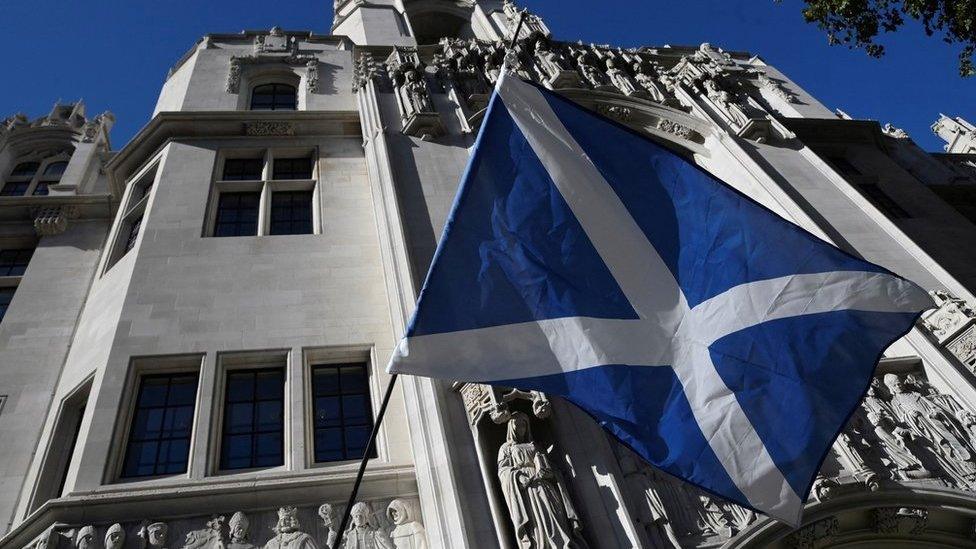
- Published10 October 2022
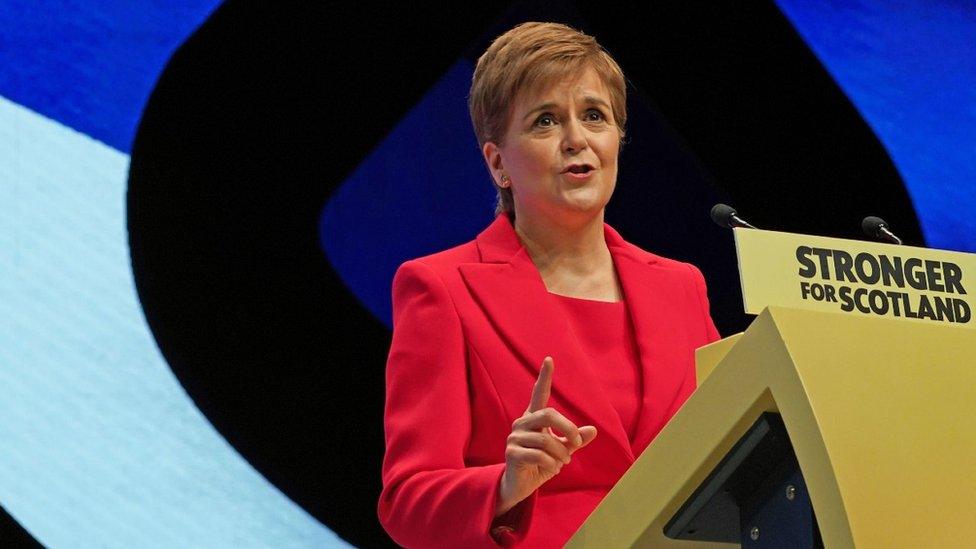
- Published14 June 2022

- Published24 June 2016
